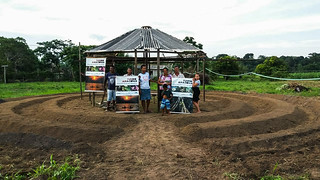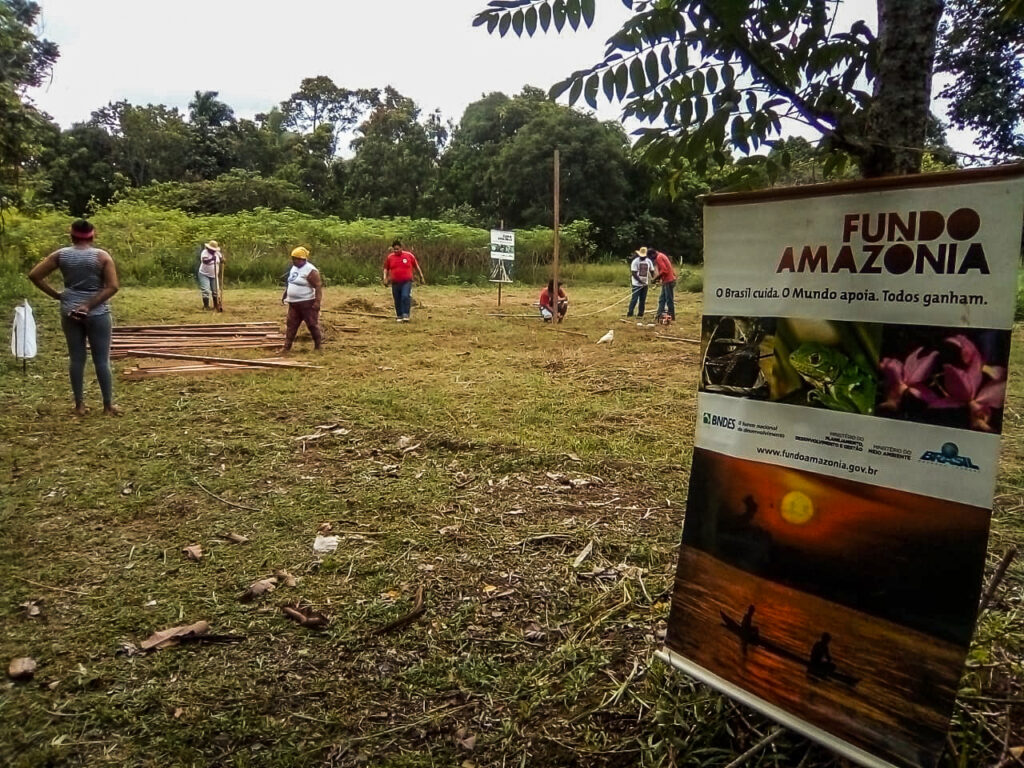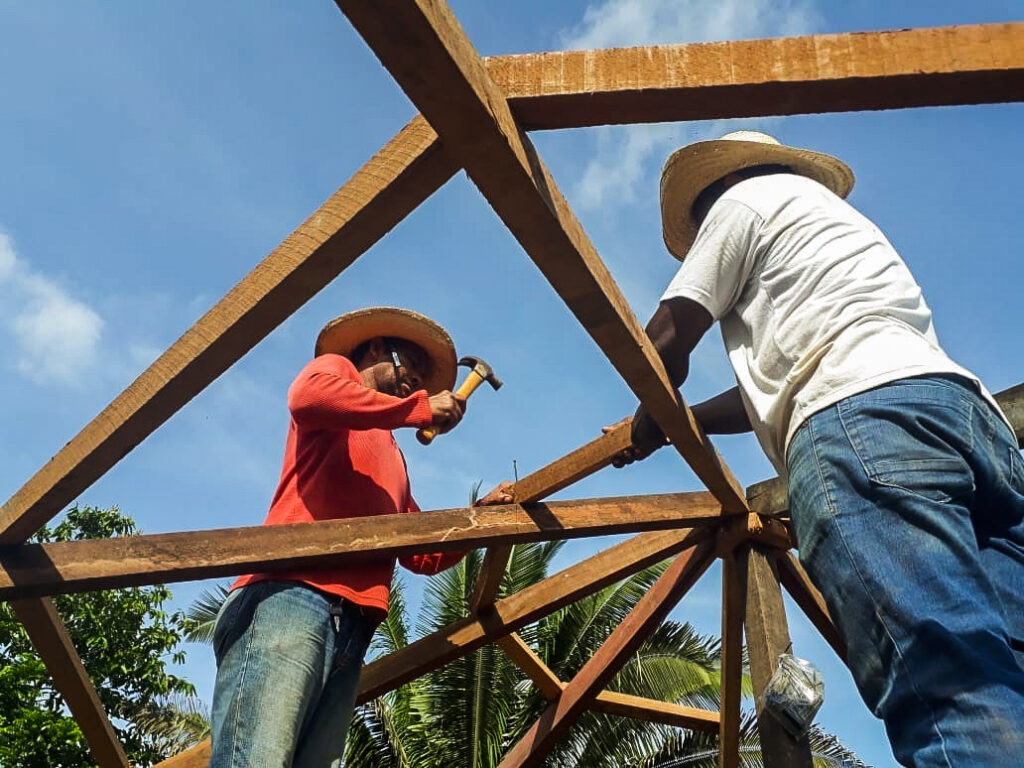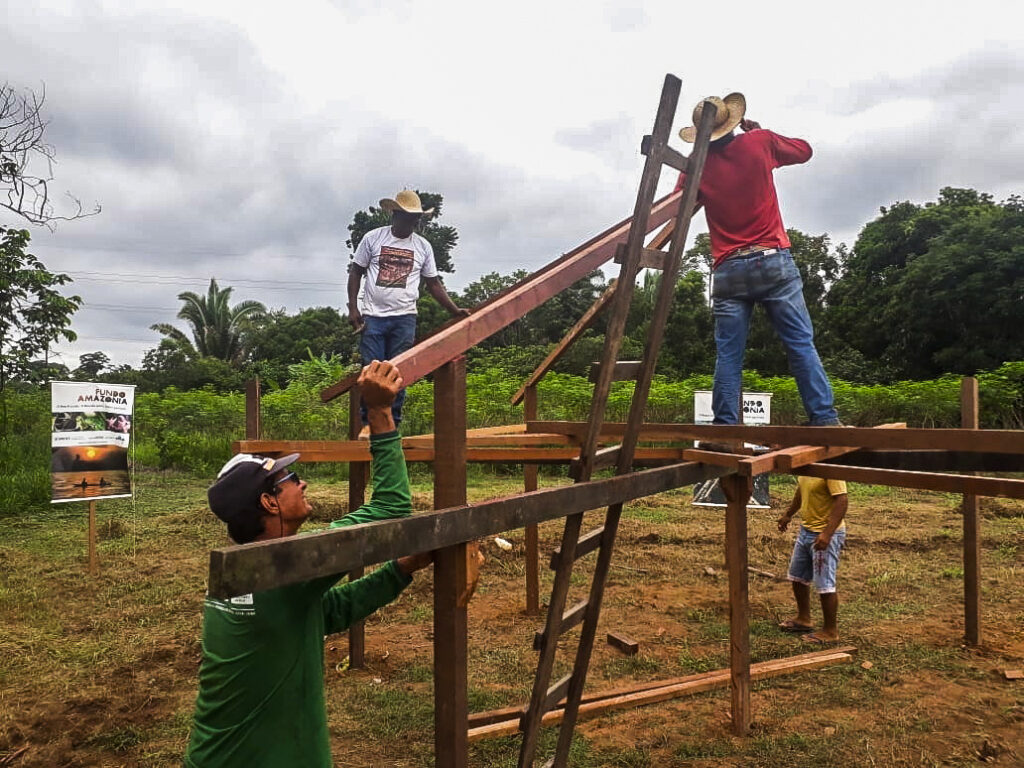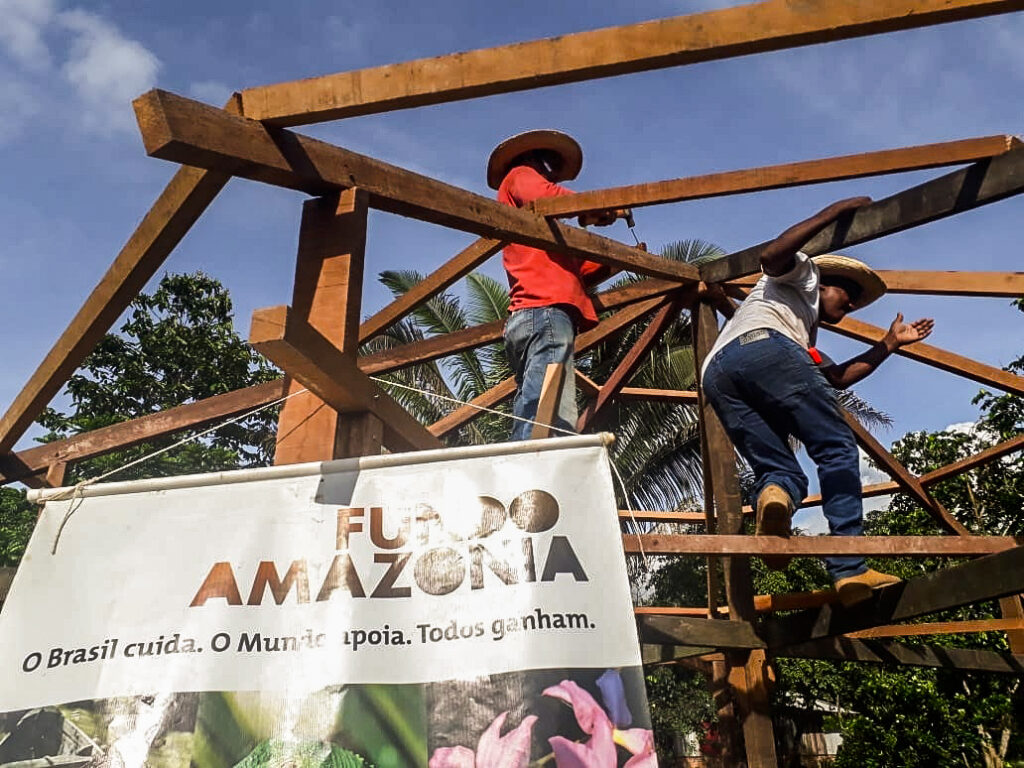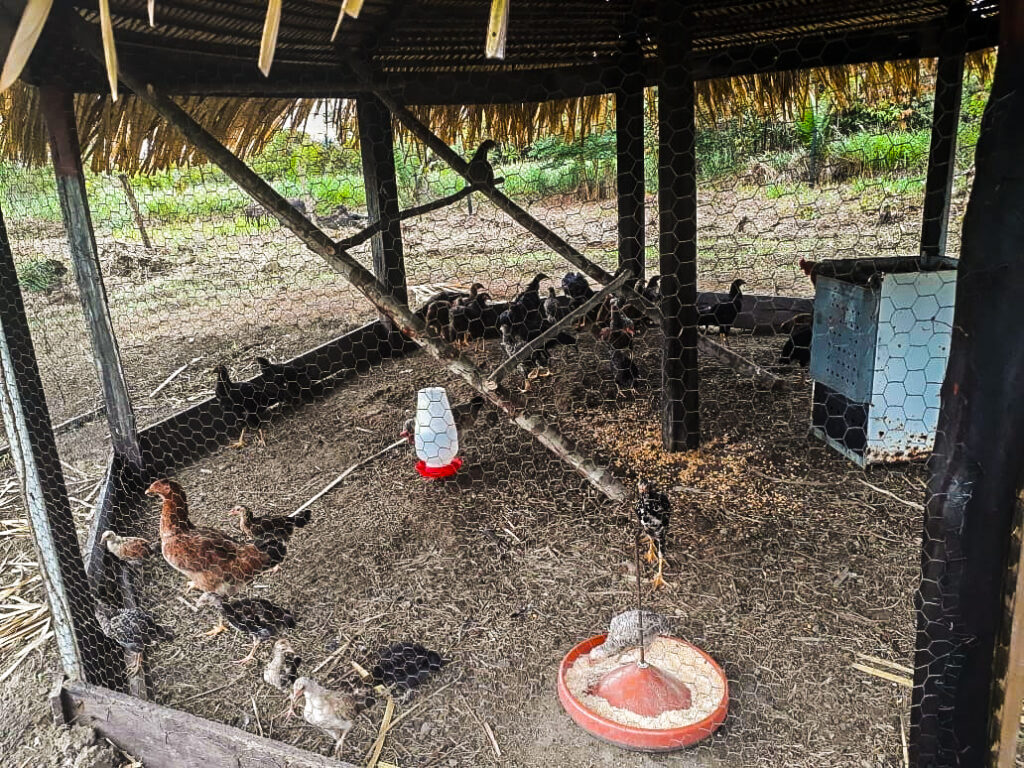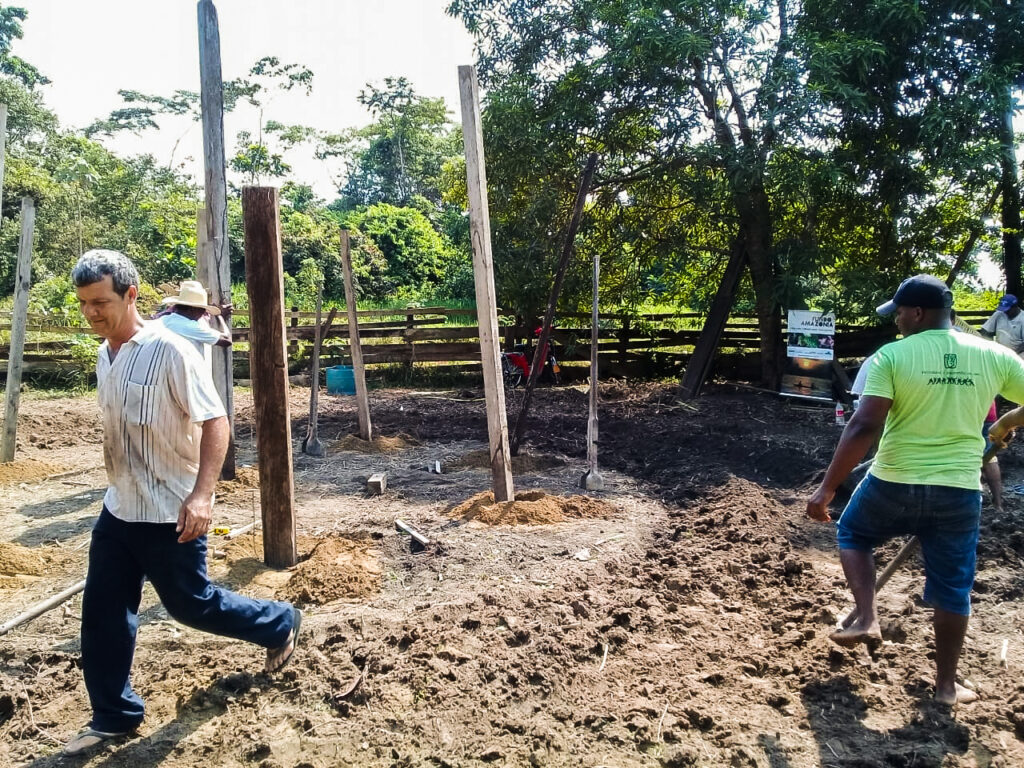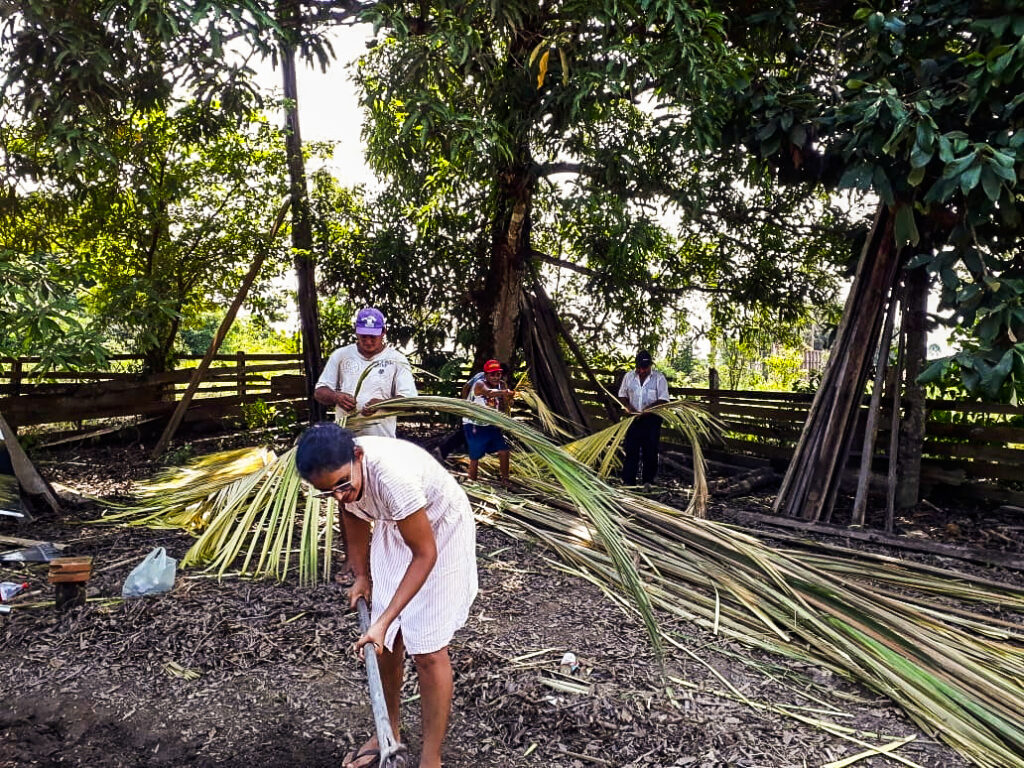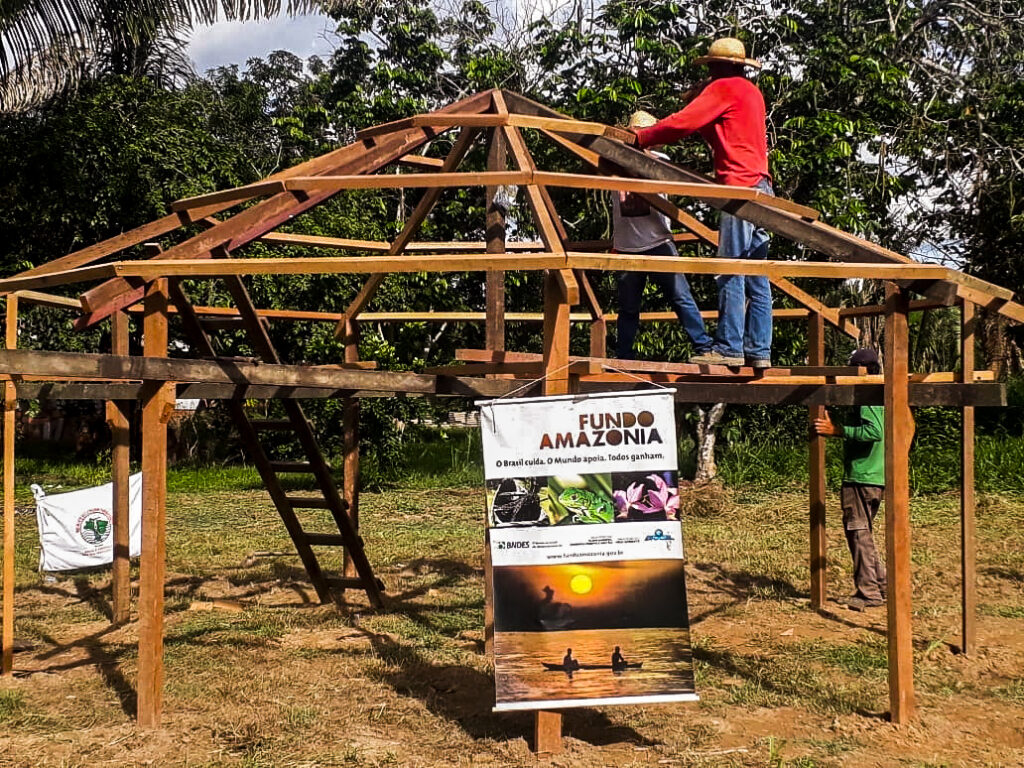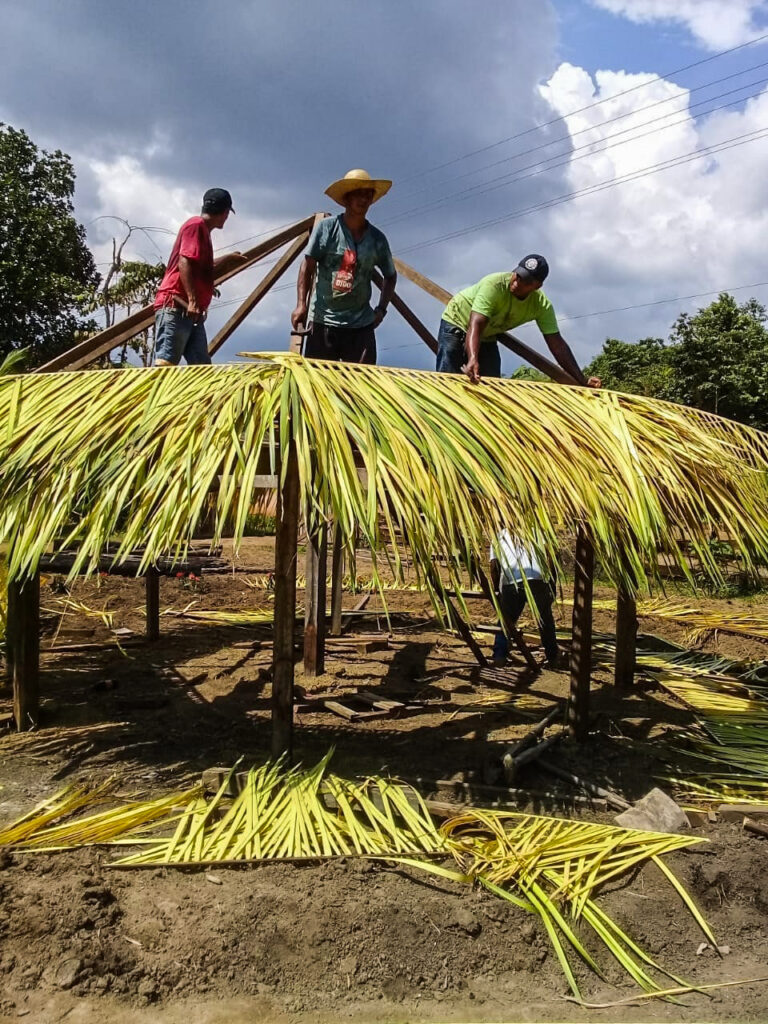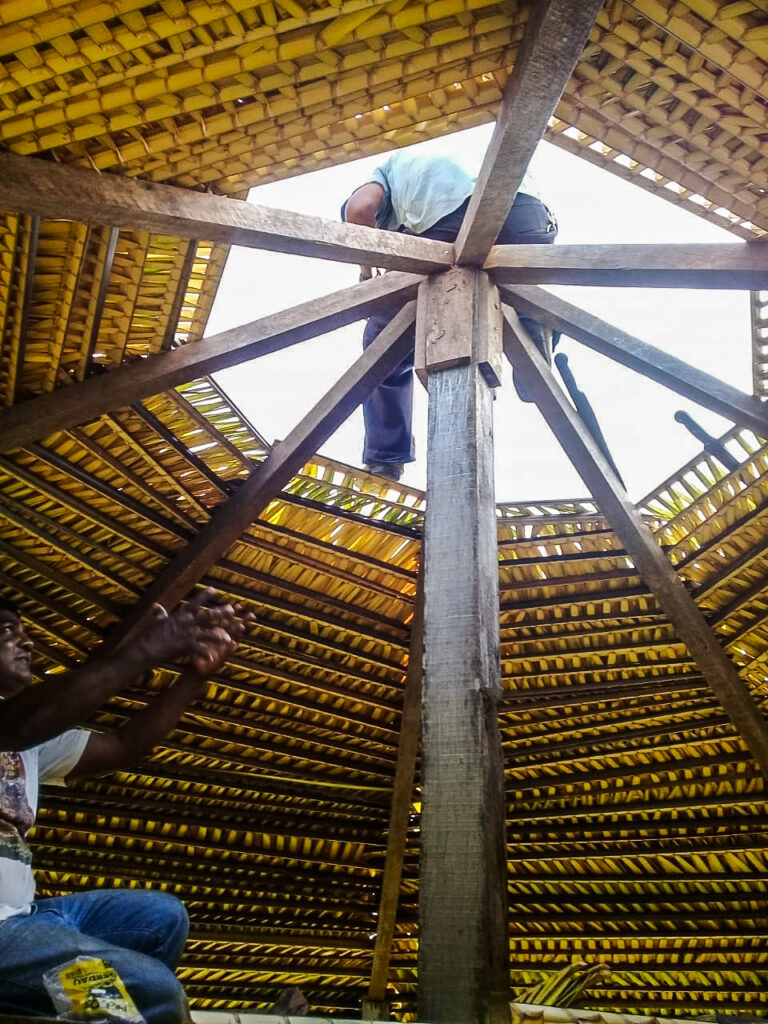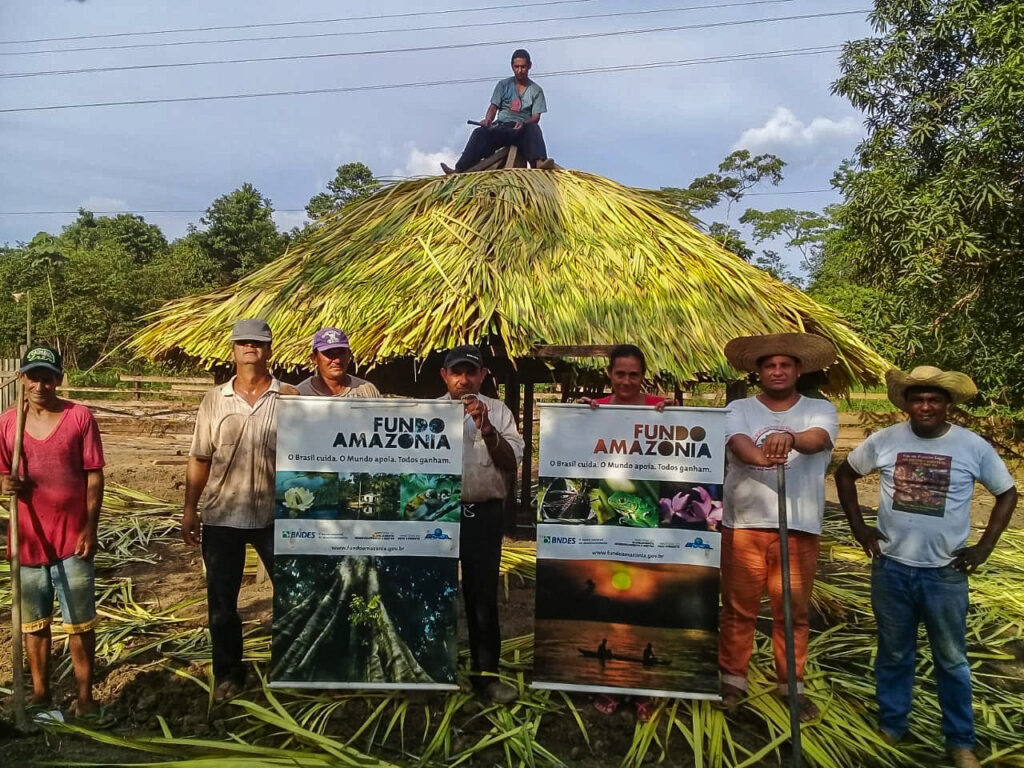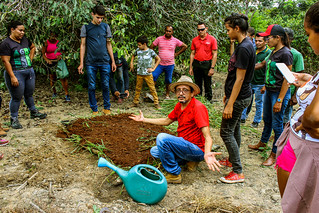Families affected by dams in Rondônia implement agroecological gardens
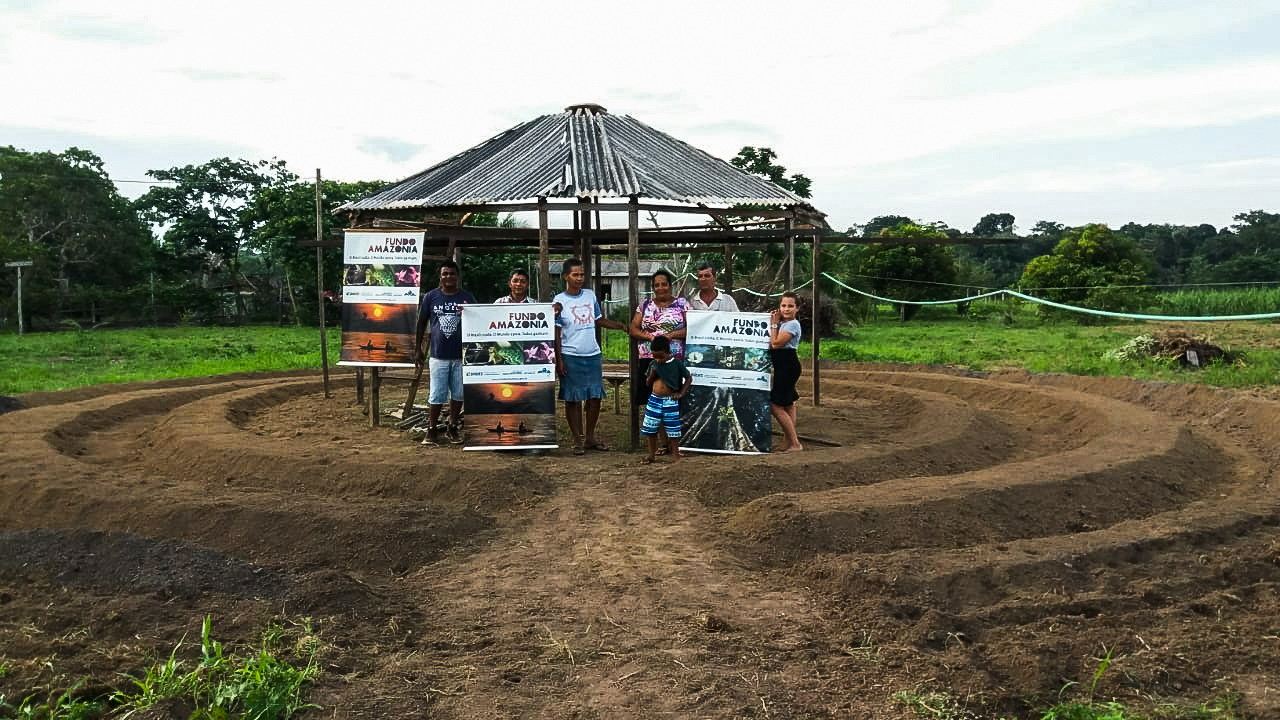
As a goal in this phase of the “Use of social technologies to reduce deforestation” project, in the state of Rondônia, 19 of the 23 planned gardens have already been started. The entire construction process involves the beneficiary family, nearby families and the project’s technical team. This speeds up construction and restores the spirit of collective work.
“We believe we are well advanced in the process. We started at the beginning of October and we’re already in the closing phase of this first stage, with just four gardens to go,” said Pedro Bonifácio, from the project’s technical team in the region. He added: “We’re building the chicken coops and the beds, and in a second stage we’ll install the irrigation and the solar panels. This process will run until January”.
Cleidi Passos, a resident of the Paraíso das Acácias settlement, in the municipality of Candeias do Jamari/RO, said: “This is a very important project in our lives. Because we’re going to start producing healthy food through agroecological production and also guarantee an extra income by selling the products that come from my vegetable garden. The idea is to sell at fairs and deliver to schools”.
She added: “In our community it’s been very important. We’re working together, and we’re so happy that we’ve already started planting a few things. It’s a way for us to organize ourselves, to build on what we’ve earned and to value what is very important in our lives, such as healthy food”.
The project is an achievement of the Movement of People Affected by Dams (Movimento dos Atingidos por Barragens – MAB), carried out by the Interstate Agricultural Development Association (Associação de Desenvolvimento Agrícola Interestadual – ADAI) in partnership with the National Bank for Economic and Social Development (Banco Nacional de Desenvolvimento Econômico e Social – BNDES).
